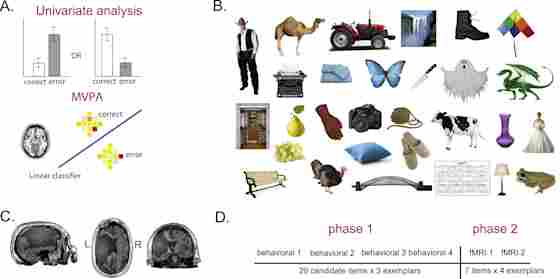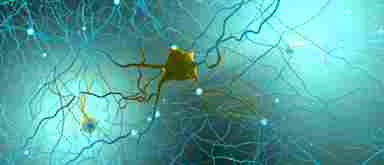Overview
Aphasia is a devastating communication disorder resulting from permanent damage to the language system of the brain. Although some degree of language recovery occurs over time, speech production remains a challenging task for these individuals. One intriguing phenomenon of the naming deficits with aphasia is that performance on particular items often fluctuates randomly. In a recent fMRI study, researchers applied novel pattern-based neuroimaging methods to predict success or failure of image identifying in undamaged cortical regions (mostly right lateralized network) of a patient with chronic aphasia. This study was the first to relate online neural activity to the behavioral naming performance during fMRI scanning.
Figure. 1. A. Contrast of the rationale for conventional univariate analysis versus MVPA in linking neural activity to behavior. B. Some of the candidate pictures chosen from an existing PNT test-retest data set. These were presented during Phase 1 of behavioral sessions. C. Anatomical lesion profile of patient KL. An expansive lesion is shown in the left hemisphere encroaching the frontal, parietal, and temporal lobes.


